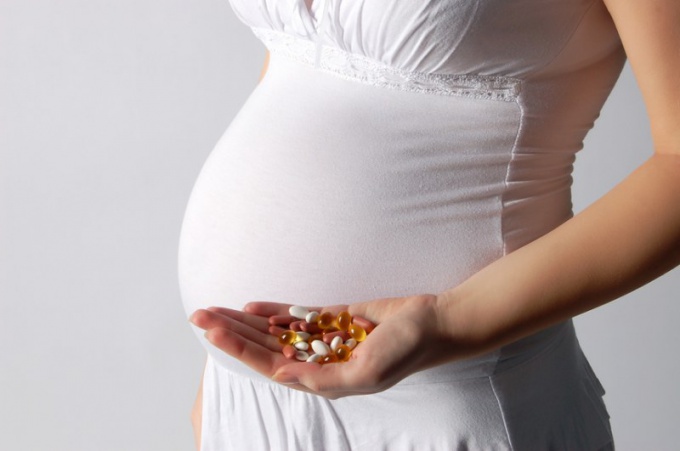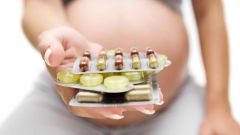Instruction
1
While carrying a child, it is recommended to take the medication very rarely, only in cases of urgent need. Medications have on pregnancy very different effect, depending on the substances in the composition of the drug. However, there are cases when the medication required, for example, for those who have chronic diseases. Pregnant women with diabetes can't refuse medication because this disease requires constant use of medicines containing insulin.
2
In such cases it is necessary to consult the family doctor, who may advise a different drug during pregnancy. Do not forget that completely harmless drugs do not happen. Even drugs are allowed during pregnancy, have side effects and contraindications. But if the medication is not dispensed, it is necessary that the intended benefits of the drug still exceeded the potential risk.
3
In early pregnancy the drugs are especially dangerous. This is due to the fact that with 6-8 weeks of pregnancy is the formation of systems and organs of the embryo, and the reception of many medicines can cause defects of development.
4
The safest period for medication during pregnancy is the second trimester. Approximately 16 weeks of pregnancy the placenta is finally formed. She begins to perform an important function of a protective barrier, thereby reducing the ability of some medical preparations negatively affect the fetus.
5
Medications for headaches and colds during pregnancy has a negative impact on kidney and heart of the baby. If you have a headache or you have a cold, of all anti-inflammatory drugs is better to take "Paracetamol". Do not take aspirin, as this drug is not recommended for pregnant women. It is also desirable to take Analgin, which have a negative impact on a person's blood, especially a child.
6
Prolonged use of blood-pressure medication during pregnancy can cause newborn depression. For example, as a result of taking the drug "Reserpine" that reduce high blood pressure, there is increased drowsiness. However the side effects usually pass after a few weeks after birth.
7
As a cough medicine pregnant woman fit and termopsisa infusion mother and stepmother. Of the drugs while carrying a child, you can use "Mukaltin" and "Bromhexine". From allergies during pregnancy recommended drug "Treatment". During the use of this medication obvious negative effects on the fetus were observed. The drug "Tavegil" in this regard is slightly inferior, but in any case these drugs should preferably be taken on prescription.
8
Cure for hemorrhoids during pregnancy usually prescribed in the form of suppositories and ointments, which reduce swelling and reduce pain. Usually prescribe the following drugs: "Claimant", "Procto-glivenol", "Anestezol". During acute disease use butadienovogo ointment.
9
At any term of pregnancy the expectant mother may experience inflammation of the bladder - cystitis. This may be due to various factors, including hormonal changes in the body, however mainly serve the reason of mechanical or hemodynamic factors. When the first symptoms of this disease should consult the obstetrician-gynecologist or a urologist, because only a specialist can correctly prescribe medication against cystitis during pregnancy.
Note
Prohibited medications during pregnancy are many antibiotics. To him is referred the "Streptomycin", "Chloramphenicol", "Tetracycline" and its derivatives.
The reception of large doses of "Streptomycin" causes deafness, and "Chloramphenicol" adversely affects the organs of hematopoiesis.
Drinking in early pregnancy "Tetracycline" causes malformations of the fetus in the later stages of pregnancy affects the formation of the rudiments of teeth, which the child then develops cavities.
The reception of large doses of "Streptomycin" causes deafness, and "Chloramphenicol" adversely affects the organs of hematopoiesis.
Drinking in early pregnancy "Tetracycline" causes malformations of the fetus in the later stages of pregnancy affects the formation of the rudiments of teeth, which the child then develops cavities.







